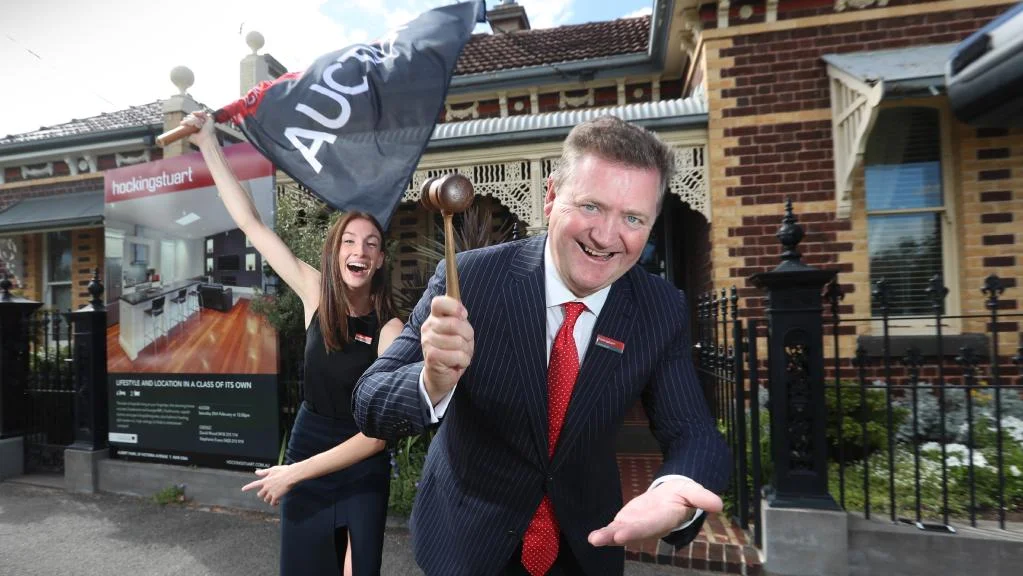Sell first or buy first: what’s best?
This article was written by Jacqui Thompson and appeared at domain.com.au
Selling your old home and buying a new one is no mean feat. Both processes require a major commitment of your time, emotions and money! Most people choose to sell their old home first and then with the available equity purchase a new home. But there are times where buying first may better suit your circumstances.
We look at the pros and cons of each and talk to a buyer who recently juggled the selling and buying conundrum.
Selling your home first and buying later
Commonly, people sell their existing home first. This helps to free up their equity and establishes a realistic budget when it comes to finding a new house. Ideally you will time the selling of your old home and purchase of your new house as closely together as possible. This will help avoid the expense and trouble of having to organise interim accommodation and moving house twice.
There are a number of road blocks to this scenario:
- You will need to manage both the selling and buying real estate processes at once.
- It may take much longer than you anticipated to find and settle on your new dream home.
- Real estate values may rise after selling, pricing you out of your desired market.
If there is an interim period between your real estate sale and purchase there are a number of options you can look at:
- Negotiate a longer settlement period on the sale of your home
- Organise to lease back your sold home from the new owner to give you more time to find a property
- Move into a rental property
- Stay with family or move into a hotel and place your goods in storage.
These options will generally save you money in comparison to buying before selling and incurring the costs of two homes and two mortgages.
It is important to take into account your accommodation arrangements when finalising the settlement dates on your home sale and new purchase.
Laura, who recently bought a three-bedroom house in Sydney's inner-west suburb of Annandale for $1.217 million, had been renting in the interim. To be safe, Laura organised a few extra days in the rental property past the settlement date in case something went wrong.
"The actual [settlement] process was quite time consuming and there were a lot of administrative errors" explains Laura. "You just have to expect that there's going to be issues, our settlement was delayed twice through no fault of our own."
Not only did Laura require the additional days she had factored in, it was also necessary to negotiate more time in the rental property with the leasing agent to cover the settlement delays.
"I was lucky that they hadn't found a tenant yet. If they had, obviously it would have been a bit more problematic." says Laura.
Buying your new home first and selling later
Buying before you sell can be financially tricky but you cannot control when your dream home may come on the market. For some, the convenience of a single relocation is worth the potential costs.
Without the equity from the sale of your existing home you are likely to require bridging finance to cover the purchase of your new home. Bridging finance can cost more than a standard home loan. Additionally, buying first can mean extra pressure to sell your existing property, leaving you with less control over the sale process.
There are some steps you can take to reduce the burden of juggling two properties:
- Make the sale of your existing home a contingency on the purchase of your new home; but be warned, this may put sellers off.
- Negotiate a longer settlement on the purchase of your new property, giving you more time to sell.
- Rent out your old home until it is sold but keep in mind, a tenancy can make the sale process more complicated.
- Rent out your new home while working on the sale of your existing home, but this requires timing the end of the tenancy with the sale of your existing home.
If you are in a situation where you are maintaining more than one property and require two mortgages it is important to shop around.
For example, Laura managed to obtain significant savings on her mortgage arrangements when purchasing her Annandale property by using the same lender who financed an investment property she bought several years earlier in Coogee.
After undertaking her own online research Laura tried two mortgage brokers before settling on her new loan arrangements. The first mortgage broker was recommended to Laura but she returned to the broker who had negotiated her first loan.
"I thought they structured the loans a lot better and it actually ended up being with the same bank which has my Coogee loan,” says Laura. “Because I have the two properties there was a lot more flexibility."
"I got a discount off the rate. For the three year [fixed] I received 4.99% and for the variable 4.79%. The investment property was fixed a year or so ago so that's 5.39% at the moment."
Laura also has the convenience of an offset account attached to the variable portion of her Annandale property's mortgage.





